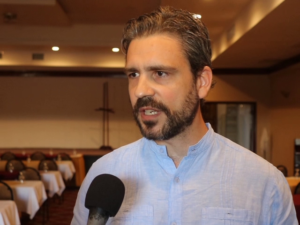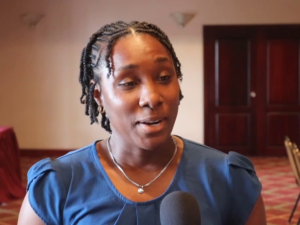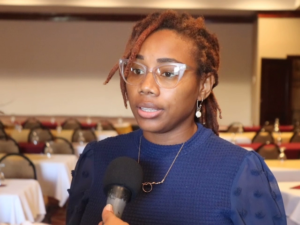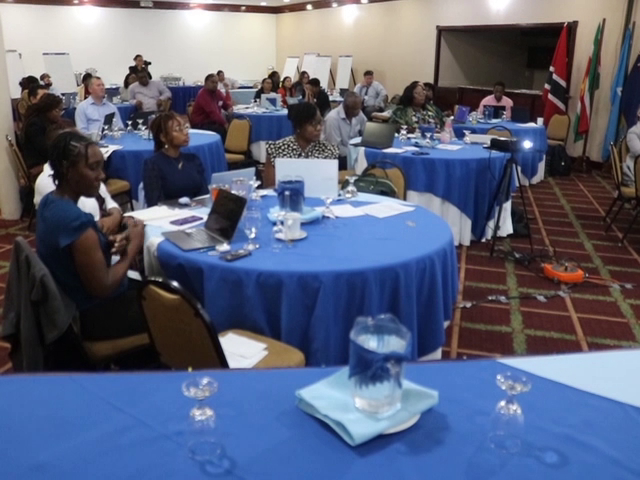SIDS Learn Environmental Data Collection from Each Other
Individuals from various Small Island Developing States and countries are in a week-long workshop on how to collect and exchange environmental information for best practice solutions. The training is part of a response to a call for action on data solutions in 2022, by these developing states and countries. This is to accelerate the implementation of the 2030 Agenda and formalize the Kunming Montreal Global Biodiversity Framework. The framework sets out an ambitious pathway to reach the global vision of a world living in harmony with nature by 200. News Five’s Marion Ali attended part of the event and spoke with the organizer and key participants to find out how countries can benefit from this initiative. Here’s that report.
Marion Ali, Reporting
The idea behind the workshop is to unlock the potential for the Small Island Developing States and countries to learn from each other about data solutions in environmental information systems that already exist. Maximilien Pardo is the UN Secretariat’s SIDS Interregional Advisor who organized the workshop. He told News Five that best practices can come from the discussion considering climate change and its impact on the environment.

Maximilien Pardo
Maximilien Pardo, SIDS Interregional Advisor, UN Secretariat
“SIDS formed a SIDS Coalition for Nature that was actually launched at COP 15 Biodversity two years ago in 2022. That coalition launched a call for action with three priorities. Those three parties are Financing for Nature, Data for Nature, and Biodiversity Mainstreaming in order to support SIDS in the implementation of the Global Biodiversity Framework that was actually adopted in 2022. This is one workshop that is actually part of a two-year project, really trying to facilitate best practices to be replicated from one country to another. We talk about data solutions for nature, but of course, we cannot talk about nature without talking about climate change, and we cannot talk about climate change without talking about nature.”
Two of the participants at the forum are Anika Jarvis, a data consultant in the Ministry of Environment in Antigua and Barbuda, and Trina Palacio, a Blue Economy Officer in the Ministry of Blue Economy and Disaster Risk Management.

Anika Jarvis
Anika Jarvis, Data Consultant, Ministry of Environment, Antigua & Barbuda
“I really liked Trinidad and Tobago’s Biodiversity information System. I think we’ve implemented a few different systems of our own, but those have been more climate change focused, so I think that’s a good model to follow. They just have a biodiversity system that’s meant to house a lot of their biodiversity-focused data, looking at their protected areas and also what researchers in the country have been doing as well.”

Trina Palacio
Trina Palacio, Blue Economy Officer, Ministry of Blue Economy
“We have different methodologies on how we produce data, how we actually share data, how we utilize data, the analytics, etc, and They have certain methodologies that would be very much applicable to Belize. At this time, we have systems that we have developed, but there are better ways sometimes of doing things. They’re also able to learn from us as it relates to the ways how we collect data or how we share data.”
For the organizer, Maximilien Pardo, walking away with a better idea of how to enhance data collect, access file and use the information is key when the need arises in these vulnerable regions.
 Maximilien Pardo
Maximilien Pardo
“Having actually evidence-based measures to protect the environment will automatically be a vehicle to have actually sound climate change adaptation and mitigation measures that are needed in SIDS and in other countries, but in SIDS in particular because there are others on the frontline of the multiple crisis between nature, loss, climate change and also even pollution.”
Marion Ali for News Five.







Facebook Comments